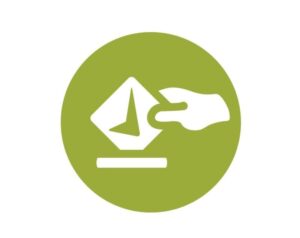In what has been by many measures an historic start to 2021 in the United States, and with the backdrop of now former President Donald Trump’s allegations of voter fraud, South African facial recognition company iiDENTIFii is highlighting the important role biometrics can play in securing elections.

Biometric authentication has been used by a number of countries to register voters and count votes for several years now. Smaller countries like Guinea have implemented biometric voter registration, while the much larger India has now also begun the process of looking into its implementation.
Africa has been a particularly active market for the adoption of biometric voting technologies, with Namibia, Kenya, Ghana and Uganda among the countries that already use some form of biometrics for digital voter registration.
Though often touted as more secure and a better overall deterrent to voter fraud, facial recognition does have some obstacles it still needs to overcome, perhaps the most prominent of which is the issue of racial bias in many of the biometric algorithms used for facial recognition. A December 2019 study released by NIST revealed that the vast majority of facial recognition algorithms used throughout the world exhibited some form of racial bias when authenticating individuals of color and women. For its part, iiDENTIFii has sought to address this issue.
“The benefits of introducing facial verification into voter registration not only secures the electoral process, but mitigates the risk of voter fraud related to identity theft and political manipulation,” said Gur Geva, Founder and CEO of iiDENTIFii. “Our developers have spent years coding a tenacious face verification software service that protects online and offline identity and respects ethnic diversity.”
Gueva was also careful to point out that as more African nations adopted biometric technologies and invested in their progression, algorithms would become more accurate and the issue of racial bias would be further mitigated.
With regards to iiDENTIFii’s home turf of South Africa, Gueva commented, “While South Africa looks set to progress with electronic voting, our country still faces challenges presented by identity fraud. In general terms, identity theft is considered a silent crime and can go undetected for months, but it has devastating impacts not only on the individual, but larger institutions within the public and private sectors as well.”
–
January 20, 2021 – by Tony Bitzionis






Follow Us